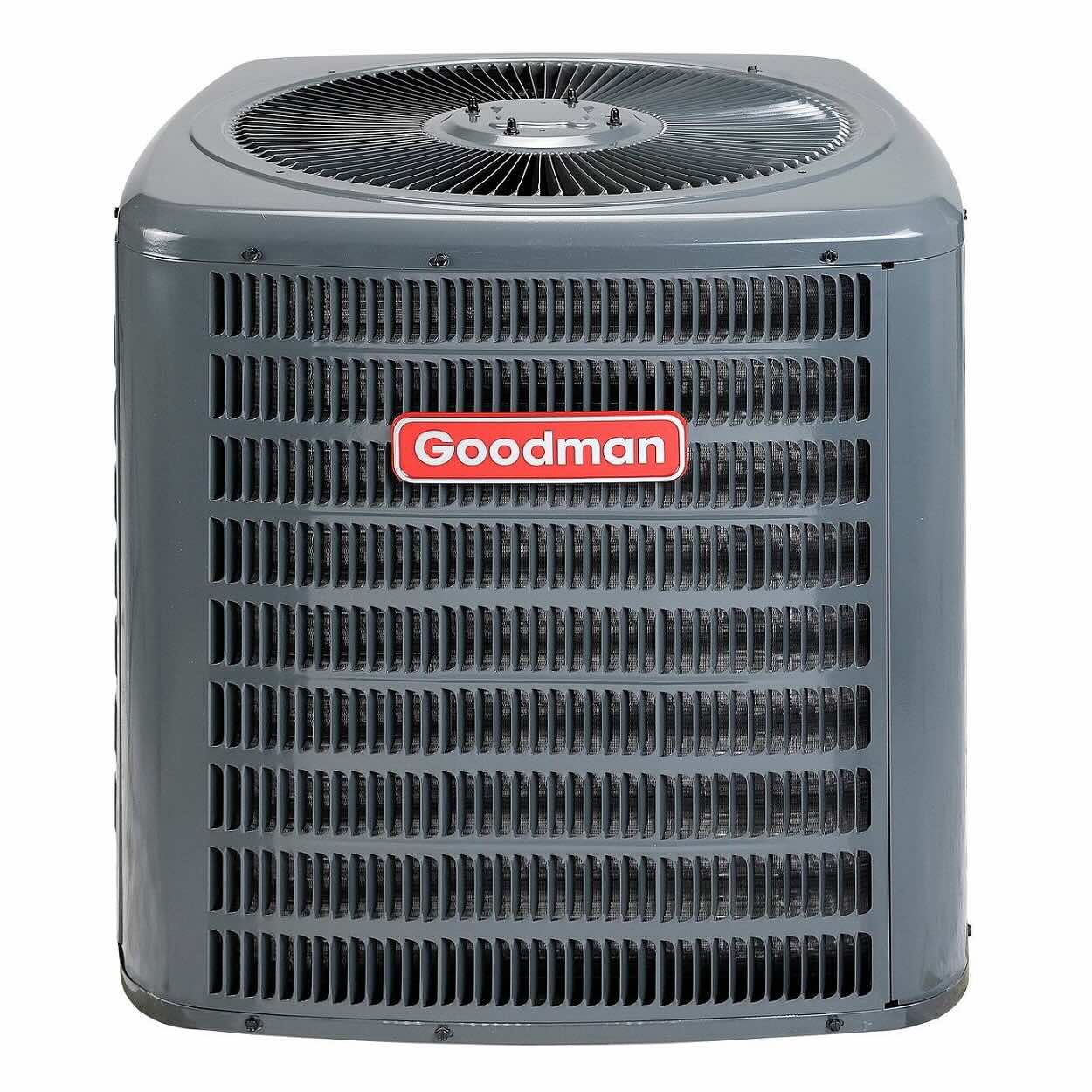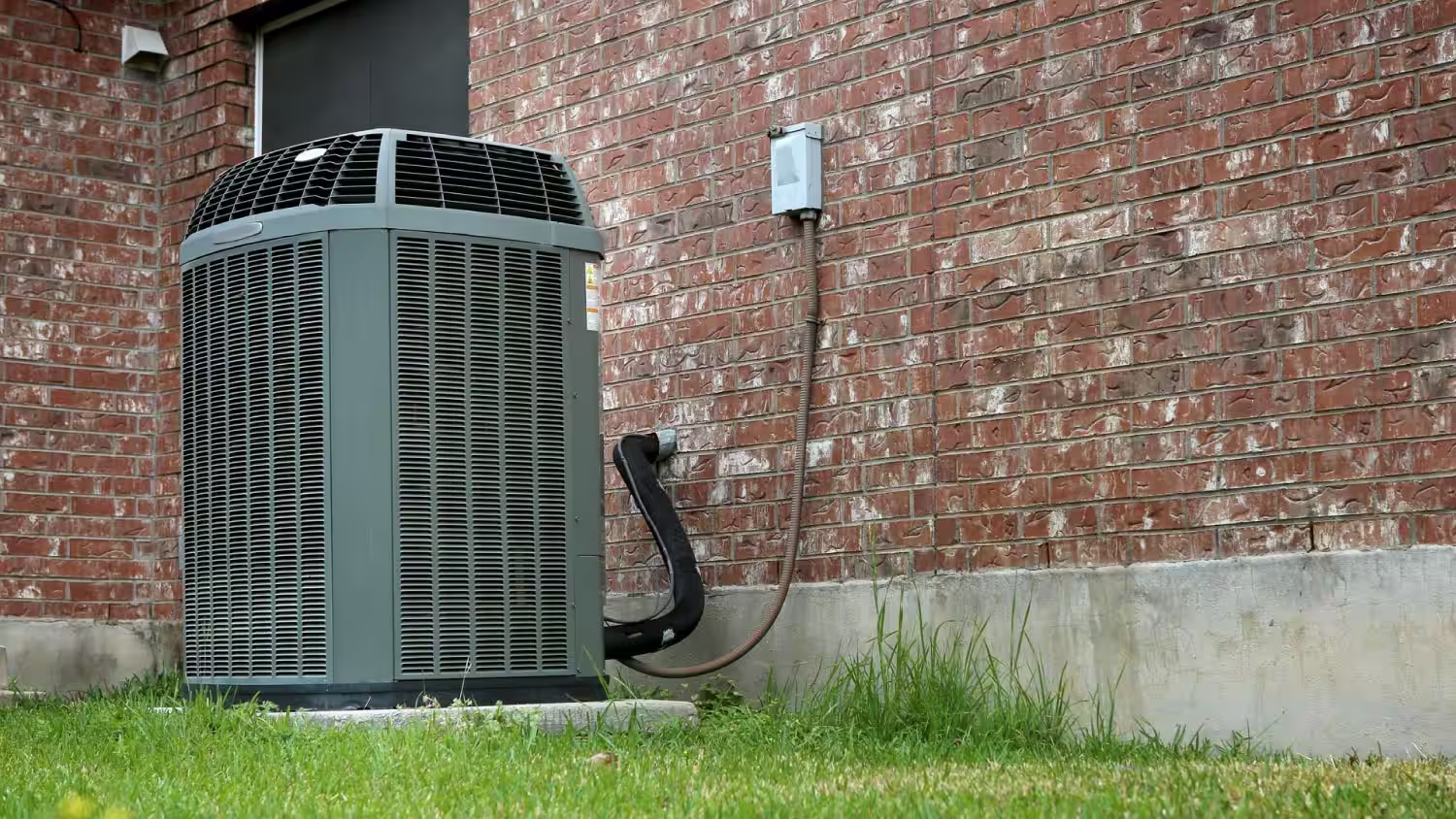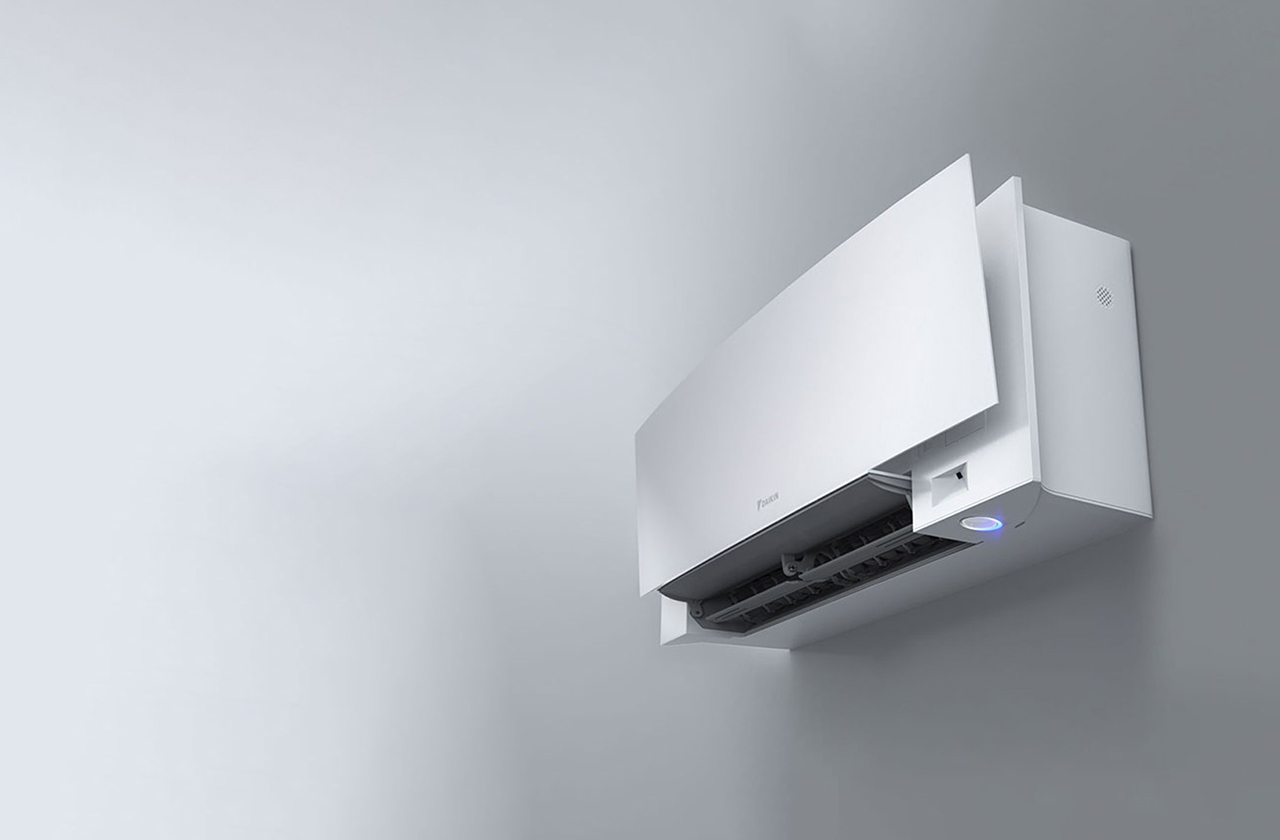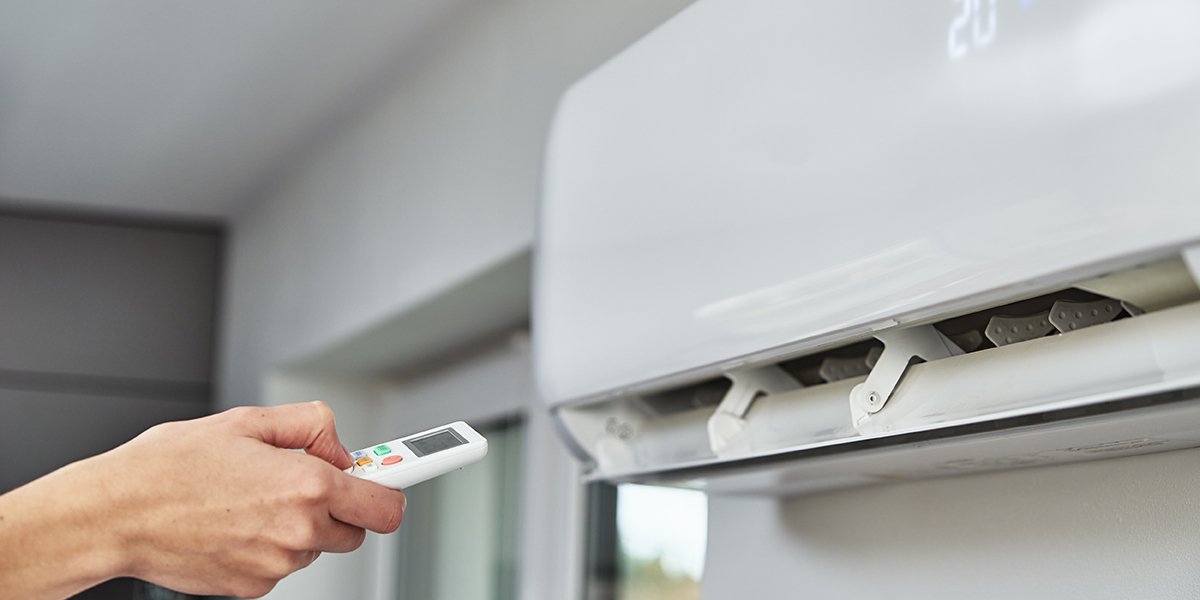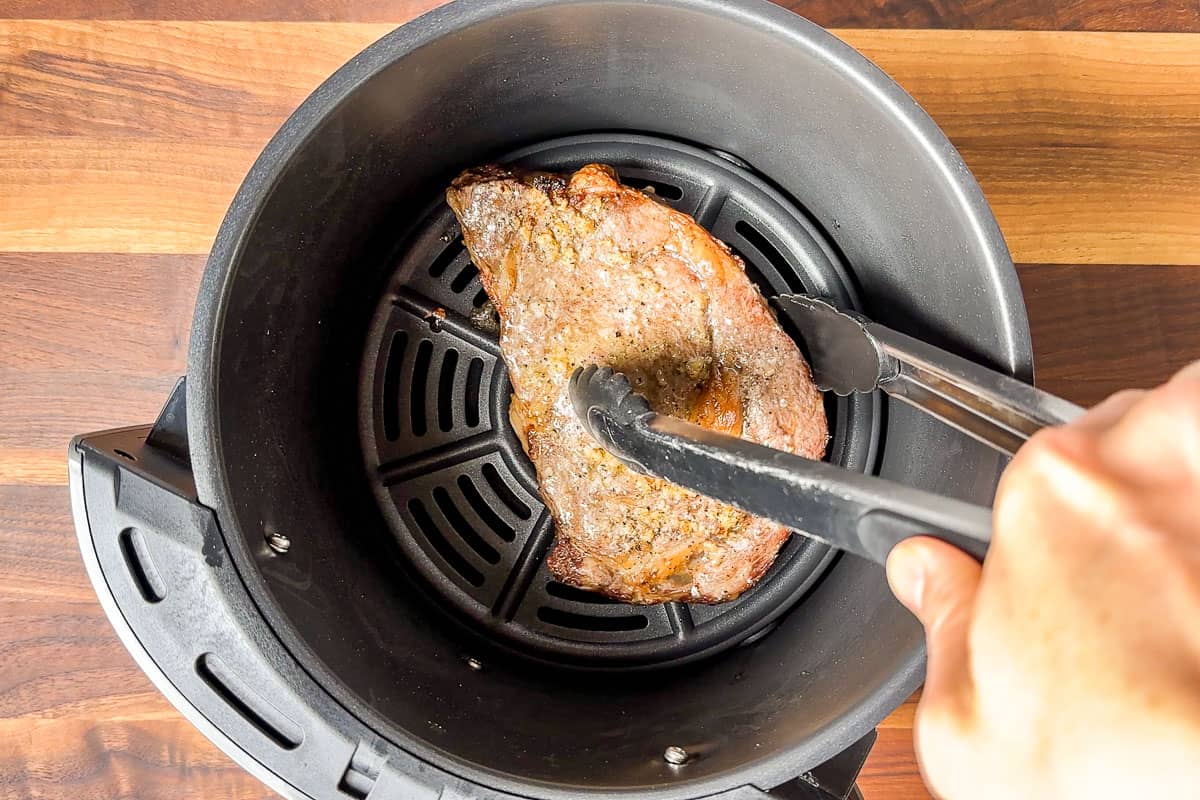Home>Home Maintenance>How To Tell If Your Air Conditioner Is Frozen
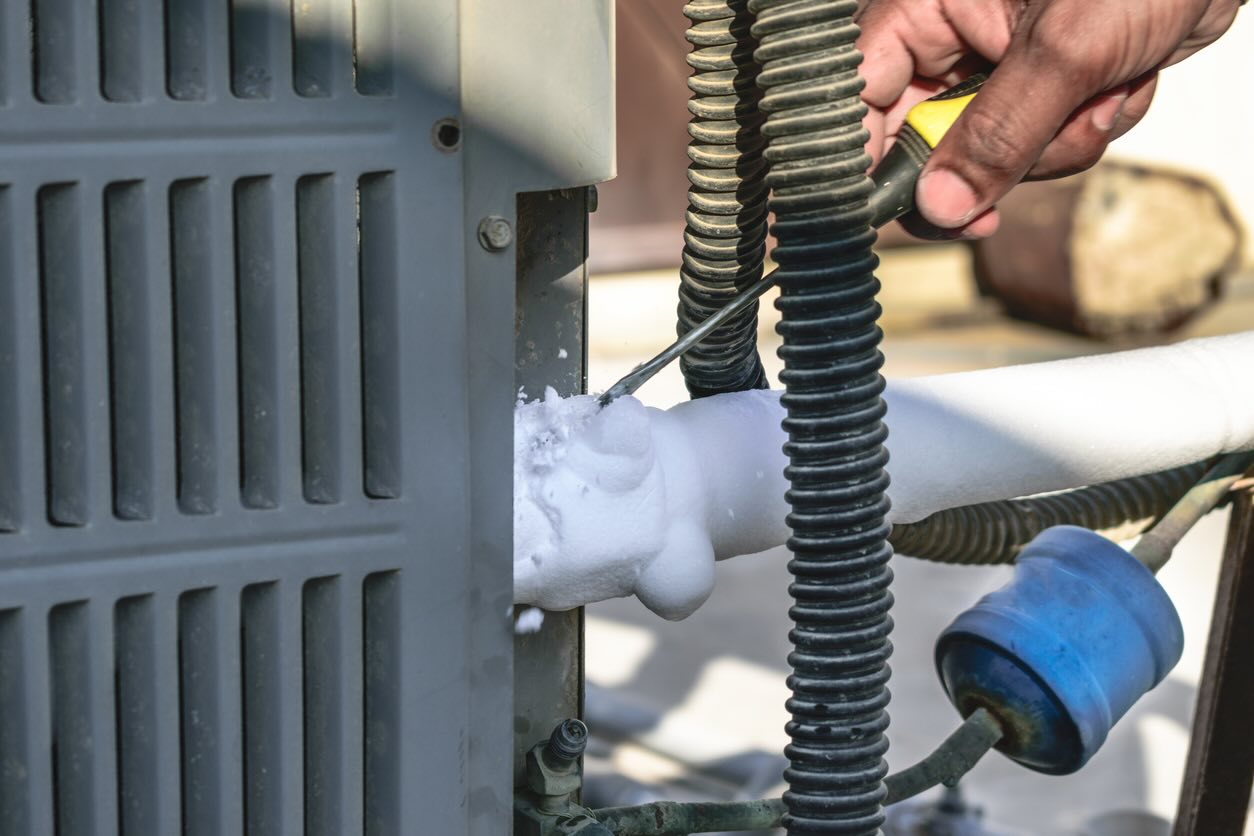

Home Maintenance
How To Tell If Your Air Conditioner Is Frozen
Modified: October 28, 2024
Learn how to identify if your air conditioner is frozen with these helpful home maintenance tips. Prevent potential damage and keep your home cool all summer long.
(Many of the links in this article redirect to a specific reviewed product. Your purchase of these products through affiliate links helps to generate commission for Storables.com, at no extra cost. Learn more)
Introduction
Welcome to our comprehensive guide on how to tell if your air conditioner is frozen. As the summer heat intensifies, it is crucial to ensure that your air conditioning system is working efficiently and effectively. One of the common issues homeowners face is a frozen air conditioner, which can disrupt the cooling process and lead to potential damage if not addressed promptly.
In this article, we will explore the reasons why an air conditioner can freeze, discuss the telltale signs of a frozen unit, guide you on how to check if your air conditioner is frozen, provide steps to take if you discover a frozen unit, and offer tips on preventing your air conditioner from freezing in the future.
Understanding the causes and symptoms of a frozen air conditioner is essential for both homeowners and professionals in the HVAC industry. By learning to identify this problem early on, you can prevent further damage, optimize your unit’s performance, and potentially avoid expensive repairs. So, let’s dive in and learn how to recognize and resolve a frozen air conditioner!
Key Takeaways:
- Don’t ignore reduced airflow, warm air, ice buildup, water leaks, or unusual odors – they could be signs of a frozen air conditioner. Take action to prevent damage and keep your home cool.
- Regularly clean or replace air filters, ensure proper airflow, and schedule professional maintenance to prevent your air conditioner from freezing. Stay cool and save on repair costs!
Read more: How To Tell If Your AC Is Frozen
Reasons for Air Conditioner Freezing
There are several factors that can cause an air conditioner to freeze up. Understanding these reasons can help you identify and address the issue more effectively. Here are the main causes of air conditioner freezing:
1. Insufficient Airflow: One of the primary reasons for an air conditioner to freeze is inadequate airflow. When there is limited air circulating through the system, the evaporator coil (which is responsible for cooling the air) can become too cold and freeze. This can occur due to dirty or clogged air filters, blocked vents, or closed registers. It is crucial to regularly clean or replace air filters and ensure that vents and registers are unobstructed to promote proper airflow.
2. Refrigerant Levels: Another common cause of air conditioner freezing is incorrect refrigerant levels. Refrigerant is the substance that absorbs heat from the air, cools it down, and circulates it back into your home. If there is too little refrigerant in the system, the evaporator coil can become too cold and freeze. Low refrigerant levels can be caused by a leak in the system, which should be addressed promptly by a professional HVAC technician.
3. Thermostat Settings: Improper thermostat settings can also contribute to an air conditioner freezing. If the thermostat is set too low, it can cause the evaporator coil to become excessively cold and freeze. It is essential to set the thermostat to a reasonable and comfortable temperature that allows the air conditioner to function optimally without compromising its components.
4. Dirty Coils: Over time, the evaporator and condenser coils of an air conditioner can accumulate dirt, dust, and debris. These contaminants act as an insulating layer, preventing heat transfer and causing the coil to get too cold and freeze. Regular maintenance, including coil cleaning, can help prevent this issue.
5. Mechanical Issues: There are various mechanical problems that can lead to air conditioner freezing. A malfunctioning blower fan or a faulty motor can result in reduced airflow, which can cause the evaporator coil to freeze. Additionally, a malfunctioning or blocked expansion valve can cause the refrigerant to flow incorrectly, leading to freezing. Professional HVAC technicians can diagnose and repair these mechanical issues to restore the proper functioning of your air conditioner.
By understanding the reasons behind air conditioner freezing, you can take appropriate measures to prevent or address the issue effectively. Regular maintenance, proper airflow, and prompt repairs are key to ensuring that your air conditioning system runs smoothly and efficiently.
Signs of a Frozen Air Conditioner
Recognizing the signs of a frozen air conditioner is crucial to addressing the issue promptly and preventing further damage. Here are some common signs that indicate your air conditioner may be frozen:
1. Reduced Airflow: One of the earliest signs of a frozen air conditioner is reduced airflow from the vents. You may notice that the air feels weak or barely coming out of the vents compared to its usual strength. This can occur because the frozen evaporator coil restricts the flow of air through the system. If you observe a significant decrease in airflow, it is a clear indication of a potential freezing problem.
2. Warm Air: Another telltale sign is when your air conditioner blows warm air instead of cool air. The frozen evaporator coil prevents the proper cooling process, resulting in the circulation of warm air throughout your home. If you notice a lack of cool air despite setting your thermostat to a lower temperature, it is likely that your air conditioner is frozen.
3. Ice Buildup: The most obvious sign of a frozen air conditioner is the presence of ice on the outdoor unit or the evaporator coil (located inside the air handler). You may notice a layer of ice on these components or even the refrigerant lines connected to the unit. This ice formation occurs due to the excessive cold temperature of the evaporator coil caused by restricted airflow or other factors.
4. Water Leaks: As the ice on the evaporator coil melts, it can result in water leaks around the air handler or in the vicinity of the unit. You may observe water pooling or dripping from the unit, which can damage the surrounding area and indicate a frozen air conditioner. It is essential to address these water leaks promptly to prevent further damage and ensure the efficient functioning of your unit.
5. Unusual Odors: A frozen air conditioner can produce musty or moldy odors due to the excessive moisture buildup. When the coil thaws, the accumulated moisture can create a breeding ground for mold and mildew, causing unpleasant smells. If you notice a distinct odor coming from your air conditioning system, it is worth investigating for possible freezing issues.
It is important to remember that these signs may not always indicate a frozen air conditioner, as they can also be linked to other HVAC system malfunctions. However, if you notice any combination of these signs, it is advisable to take action and have your unit inspected by a professional HVAC technician to diagnose the issue accurately.
How to Check if Your Air Conditioner is Frozen
If you suspect that your air conditioner may be frozen, there are a few steps you can take to confirm the issue. Here’s how to check if your air conditioner is frozen:
1. Turn Off the System: The first and most crucial step is to turn off your air conditioning system. This helps prevent further damage and allows the ice to thaw naturally. Do not attempt to remove the ice manually, as this can cause damage to the unit.
2. Inspect the Air Filter: Start by checking the air filter in your air conditioning system. A dirty or clogged filter can restrict airflow, leading to a frozen coil. If the filter is dirty, replace it with a clean one to improve airflow. Make sure to use the correct filter size and type recommended by the manufacturer.
3. Check the Vents and Registers: Ensure that all vents and registers in your home are open and unobstructed. Closed vents or blocked registers can reduce airflow, contributing to a frozen air conditioner. Make sure that furniture, curtains, or other objects are not blocking the air supply and return vents.
4. Examine the Outdoor Unit: Inspect the outdoor unit of your air conditioner for any visible signs of ice buildup. If you notice ice on the unit or the refrigerant lines connected to it, it is a clear indication of a frozen air conditioner. However, keep in mind that a thin layer of frost may be normal during operation, especially in humid conditions. Significant ice accumulation is what you should be concerned about.
5. Check the Evaporator Coil: Locate the air handler unit, which houses the evaporator coil. Open the access panel and carefully inspect the coil for any signs of ice formation. If the coil is covered in ice, it confirms that your air conditioner is frozen.
6. Monitor for Thawing: After you have identified the frozen air conditioner, leave the system turned off and allow the ice on the coil and unit to thaw naturally. Place towels or a bucket under the unit to catch any water that may drip during the thawing process.
If you are unsure about checking your air conditioner or are uncomfortable doing so, it is best to contact a professional HVAC technician. They can help you safely diagnose the issue and provide the necessary repairs or maintenance to restore your air conditioner’s functionality.
Remember, prevention is key in avoiding a frozen air conditioner. Regularly clean or replace air filters, ensure proper airflow, and schedule professional maintenance to keep your unit running smoothly and prevent freezing issues in the future.
Check for ice buildup on the refrigerant lines and coils of your air conditioner. If you see ice, turn off the unit and let it thaw before calling a professional for repairs.
Steps to Take if Your Air Conditioner is Frozen
If you have confirmed that your air conditioner is frozen, it is important to take immediate action to prevent further damage and restore its proper functionality. Here are the steps to take if your air conditioner is frozen:
1. Turn Off the System: The first and most crucial step is to turn off your air conditioning system. This will stop the cooling process and allow the ice to melt naturally. It is important to avoid manually removing the ice as it can damage the unit.
2. Let it Thaw: After turning off the system, allow the ice on the evaporator coil and other affected components to thaw completely. This process can take several hours, and it is important to be patient and avoid rushing the thawing process.
3. Check for Water Leaks: As the ice melts, water may drip from the unit. Place towels or a bucket under the air conditioner to catch any water and prevent damage to the surrounding area. Monitor the area for any excess water or leaks during the thawing process.
4. Examine the Air Filter: During the thawing process, check the air filter in your air conditioning system. If it’s dirty or clogged, replace it with a clean filter. A clean air filter promotes proper airflow and helps prevent future freezing issues.
5. Inspect the Vents and Registers: Ensure that all vents and registers in your home are open and unobstructed. Clear away any furniture, curtains, or other objects that may restrict the flow of air. Improving airflow is crucial to preventing the air conditioner from freezing again.
6. Perform Maintenance: Once the air conditioner has completely thawed and you have addressed any potential airflow issues, it is advisable to perform routine maintenance. Clean the evaporator and condenser coils from dirt and debris. Check for any refrigerant leaks and ensure the refrigerant levels are correct. If you are unsure or uncomfortable with performing these tasks, it is recommended to hire a professional HVAC technician for maintenance.
7. Restart the System: After taking the necessary steps to address the issue, turn on your air conditioning system and monitor its performance. Ensure that cool air is flowing consistently from the vents without any signs of reduced airflow or ice formation. If you notice any abnormalities or the issue persists, contact a professional HVAC technician for further inspection and repair.
It is crucial to remember that preventing a frozen air conditioner is much easier than fixing one. Regular maintenance, proper airflow, and addressing any issues promptly can help prevent your air conditioner from freezing and ensure its efficient functioning throughout the summer months.
Read more: How To Tell If An Air Conditioner Is Broken
Preventing Your Air Conditioner from Freezing
Preventing your air conditioner from freezing is essential to maintain its efficiency, prolong its lifespan, and avoid costly repairs. Here are some preventive measures you can take to keep your air conditioner from freezing:
1. Clean or Replace Air Filters: Regularly clean or replace the air filters in your air conditioning system. Air filters can become dirty or clogged over time, restricting proper airflow and leading to freezing. A clean filter allows for better air circulation and helps prevent the evaporator coil from getting too cold.
2. Maintain Adequate Airflow: Ensure that all vents and registers are open and unobstructed. Blocked vents limit airflow, causing the evaporator coil to become excessively cold. Clear any furniture, curtains, or other objects that may impede the airflow and inhibit the proper functioning of your air conditioner.
3. Schedule Professional Maintenance: Regularly schedule professional maintenance for your air conditioning system. A qualified HVAC technician can inspect your unit, clean the coils, check refrigerant levels, and identify any potential issues that could lead to freezing. They can also perform tune-ups and adjustments to ensure optimal performance and efficiency.
4. Check for Refrigerant Leaks: Regularly check for refrigerant leaks in your air conditioning system. Low refrigerant levels can cause the evaporator coil to freeze. If you suspect a refrigerant leak, contact a professional HVAC technician immediately to diagnose and repair the issue.
5. Adjust Thermostat Settings: Set your thermostat to a moderate and comfortable temperature. Setting the thermostat too low can cause the evaporator coil to get too cold and freeze. It is recommended to keep the thermostat at a temperature that allows for efficient cooling without overworking the system.
6. Ensure Proper Insulation: Check for proper insulation around the refrigerant lines. Poor insulation can cause condensation to form on the lines, which can eventually freeze and lead to a frozen air conditioner. Insulate the refrigerant lines to prevent this issue and maintain optimal system performance.
7. Keep the Outdoor Unit Clear: Keep the area around the outdoor unit clear of debris, vegetation, and obstructions. Blocked airflow can cause the evaporator coil to freeze. Regularly trim plants and remove any debris that may hinder proper airflow to the unit.
8. Avoid Overworking the System: Try to avoid overworking your air conditioning system. Extreme temperature settings, constant operation on hot days, or rapid temperature changes can put undue stress on the system and increase the risk of freezing. Use energy-saving practices and consider using programmable thermostats to regulate temperature settings.
By taking these preventive measures, you can significantly reduce the chances of your air conditioner freezing up. Regular maintenance and proper care will help ensure that your unit operates efficiently, keeping you cool and comfortable during the hot summer months.
Conclusion
A frozen air conditioner can be a frustrating problem that disrupts your indoor comfort and can lead to costly repairs if not addressed promptly. Recognizing the signs of a frozen air conditioner and taking the necessary steps to prevent and resolve the issue is essential for maintaining the efficiency and longevity of your cooling system.
In this comprehensive guide, we explored the reasons for air conditioner freezing, including insufficient airflow, refrigerant levels, thermostat settings, dirty coils, and mechanical issues. We discussed the common signs of a frozen air conditioner, such as reduced airflow, warm air, ice buildup, water leaks, and unusual odors.
To check if your air conditioner is frozen, we provided step-by-step instructions, including turning off the system, inspecting the air filter, checking the vents and registers, examining the outdoor unit, and inspecting the evaporator coil. We also emphasized the importance of allowing the system to thaw naturally and performing routine maintenance before restarting the unit.
Furthermore, we discussed several preventive measures to avoid air conditioner freezing, such as cleaning or replacing air filters, maintaining adequate airflow, scheduling professional maintenance, checking for refrigerant leaks, adjusting thermostat settings, ensuring proper insulation, keeping the outdoor unit clear, and avoiding overworking the system.
By following these preventive measures and staying vigilant for signs of a frozen air conditioner, you can keep your cooling system running smoothly, avoid unexpected breakdowns, and enjoy consistent indoor comfort throughout the sweltering summer months.
If you encounter a frozen air conditioner or are unsure about diagnosing and resolving the issue, it is always recommended to seek professional assistance from a qualified HVAC technician. They have the expertise to accurately diagnose the problem, perform necessary repairs, and provide valuable maintenance tips to prevent future freezing episodes.
Remember, a well-maintained and functioning air conditioning system not only keeps your home cool and comfortable but also improves energy efficiency and lowers utility costs. Take care of your air conditioner, and it will take care of you in return!
Frequently Asked Questions about How To Tell If Your Air Conditioner Is Frozen
Was this page helpful?
At Storables.com, we guarantee accurate and reliable information. Our content, validated by Expert Board Contributors, is crafted following stringent Editorial Policies. We're committed to providing you with well-researched, expert-backed insights for all your informational needs.
